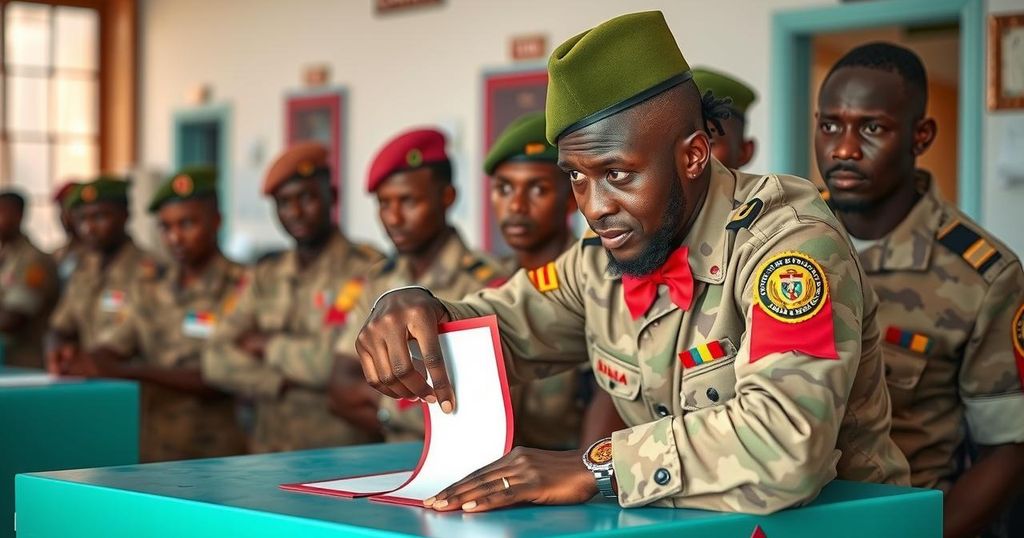Chad Holds Low Turnout General Election Amid Opposition Boycott
Chad recently conducted a general election amid low turnout and opposition boycotts, with only 38 percent of voters participating in the election for various local governance positions. Opposition leaders claimed the election results were predetermined, leading many citizens to forgo voting. The government framed the elections as an essential step towards democratization, while concerns regarding election integrity and broader insecurity in the region loom large.
Chad held a general election on Sunday, which the government has promoted as a crucial step to conclude military rule. However, the anticipated voter turnout was low following an opposition boycott. Reports indicated about 38 percent participation in elections for a new parliament, provincial assemblies, and local councils. Officials attributed the apathy partly to the “cold weather,” while opposition leaders claimed that the election results had already been predetermined.
Opposition leader Succes Masra stated that most voters remained home in response to calls for a boycott, suggesting that this left an open path for candidates affiliated with President Mahamat Idriss Deby Itno. President Deby, who ascended to power via a military coup in 2021 and had his rule validated in a contested presidential election, encouraged citizens to vote.
As has been customary, certain groups, like soldiers and nomads, cast their votes prior to the general voting day. The election management agency claimed record turnout figures from those groups, yet many ordinary citizens expressed disillusionment with the electoral process. Herve Natouingan, a local resident, criticized the futility of participating in elections characterized by a lack of genuine choice. Conversely, others, such as unemployed Patrice Lumumba Deoumoundou, clung to the hope that their votes might instigate widespread change.
The opposition continued to raise concerns over election integrity, alleging ballot tampering and urging vigilance against potential fraud by the ruling party. This election unfolds amid heightened security issues, including attacks from Boko Haram and disputes surrounding foreign military cooperation in the region. Deby’s government portrayed the elections as a pivotal move toward democracy, succeeding a period of substantial political turmoil following the death of his father, who had previously ruled for thirty years.
The context of these elections in Chad is significant, considering the country has experienced a prolonged period under military rule following the death of President Idriss Deby in 2021. The current President, Mahamat Idriss Deby Itno, assumed power amid promises of transitioning back to civilian governance. However, the opposition has continually criticized the perceived illegitimacy of the electoral process, citing pre-determined outcomes, voter apathy, and ongoing challenges posed by external threats such as Boko Haram and internal socioeconomic issues. These elections are thus depicted as essential in determining the future political landscape of Chad, with a pressing need for reform and better governance.
In conclusion, the general election in Chad reflects a complex interplay of political aspirations, public disillusionment, and ongoing challenges. With notable low voter turnout attributed to a significant opposition boycott, the ruling party stands to gain substantial influence in a post-election period marked by questions of legitimacy. As the government promotes this electoral process as a transition to democracy, the credibility of the elections and future governance remain critical issues within the Sahel region’s volatile political environment.
Original Source: www.khq.com




Post Comment